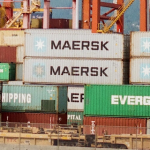From the UK’s Brexit negotiations to populism in Italy and Spain’s separatism, Europe is split, but that has not dampened demand for business education. Many MBA programs on the continent are enjoying heady application growth. Even in the UK, Brexit uncertainty has done little to stymie applications to the top schools.
Excluding Britain, applications to European business master’s degrees grew by 3.2 percent this year compared with 2017, according to the Graduate Management Admission Council. Their growth has come at the expense of US schools, which experienced a 6.6 percent drop in applications year-on-year in 2018.
Europe’s shorter MBA programs, cheaper fees, more international cohorts, and progressive visa rules are proving increasingly attractive to students. At Switzerland’s IMD, 2018 applications to the MBA are up by 63 percent versus the year before. Germany’s ESMT Berlin reports a near-50 percent MBA application surge during that period.
But the biggest surprise is how well the UK has fared since the country voted to leave the EU in 2016. UK schools had fretted that leaving the single market could potentially deprive them of international students, academics, and the EU funding for research that informs MBA teaching.
See all MBA programs in Europe
They were also concerned that some of the largest employers of their graduates, including banks, would move some jobs overseas to maintain access to the bloc.
But in one way Brexit has been beneficial for UK schools: the pound’s plunge has made their courses more attractive to students from abroad. This is one reason why, despite the Brexit uncertainty, application volume to UK schools grew by 3.9 percent this year compared with 2017, GMAC data show.
New entrants have even entered the market, including King’s Business School in London, which opened its doors in 2017. (King’s does not offer an MBA but does offer a range of MSc programs.)
“We are based in London, but we are a global school,” says David Simpson, MBA admissions director at London Business School, which reports a 10 percent increase in round-one applications for its 2019 intake, after a 10 percent dip for 2018’s intake overall. “Brexit doesn’t change our global approach — it makes it even more important,” Simpson says.
MBA application growth driven by international students
The expansion of business education in Europe is driven largely by international students. GMAC data show that 77 percent of the 2018 applications were from foreign students, far more than the 41 percent figure in Asia and 39 percent for US schools.
And for 63 percent of the European institutions surveyed by GMAC, they received more international applications year-on-year. This has been a boon for them, as a diverse range of backgrounds, cultures, and perspectives enhances the MBA learning experience for everyone.
The opposite has been true for US schools, where concerns about work visas and the negative immigration rhetoric of Donald Trump’s administration (among other factors), have led to a 10.5 percent fall in overseas student demand this year compared to 2017.
Benoit Banchereau, director of MBA admissions at HEC Paris, a French Grande École, says that political instability in both the UK and US is an opportunity for European schools.
“Some foreign students are wondering if it’s safe to go there [to the US] and have a feeling that it’s not welcoming anymore, which is incredible,” he says. “The MBA population likes to think it can work anywhere in the world. With Brexit it may be more complicated to get a visa, and this stays in prospective students’ minds.”
Banchereau says the school has invested heavily in marketing itself to international students over the past two years. HEC Paris received 2,231 applications in 2017, up by 5.6 percent on the year before, and by 11.9 percent on 2015. The proportion of overseas students in the current cohort is largely unchanged at around 90-95 percent, he says.
However, political instability persists, even in Europe
However, France — like some other European countries — has faced political instability in recent months, with demonstrators wreaking havoc in cities including Paris in protests over tax rises. Banchereau says HEC Paris was spared any damage, as it’s located in Jouy-en-Josas just outside the French capital. “We have not had any questions from prospective students about gilets jaunes,” he says, referencing the “yellow vest” protests.
Seán Meehan, dean of IMD’s MBA, puts the school’s recent growth spurt largely down to its success in the Forbes 2017 ranking of the best one-year MBAs for return on investment (ROI). According to the publication, IMD graduates enjoy a five-year “MBA gain” of $194,700 (the amount alumni earn after five years versus staying in their pre-MBA job).
Meehan also notes that IMD has streamlined its application process, too, and reduced application fees as well.
Applicants apply to European schools for multiple reasons, says Alex Min, CEO of US-based admissions advisory firm The MBA Exchange. “In addition to lower expense, shorter duration and more welcoming immigration rules, 11 of the Financial Times’ top-25 ranked business schools are located outside the US, and they have higher acceptance rates than elite US schools,” he says. “This combination of ‘prestige and access’ is a very attractive proposition.”
He notes that more of his international clients are factoring the US visa issues into their admissions decisions. Many would-be MBAs are drawn to European schools by the relatively easy access study and work visas in nations such as Germany and the Netherlands.
“However, rather than eliminating US schools from their target lists, they are hedging their bets by including top European, Asian and/or Canadian schools along with leading US schools,” says Min.
But not all European countries are perceived to be welcoming of internationals and the political instability across the continent is a big concern for the MBA market going forward. At IMD, Meehan says: “The political climate in Switzerland has become challenging — there’s fewer visas available and the process has become more arduous. It’s an issue.”










